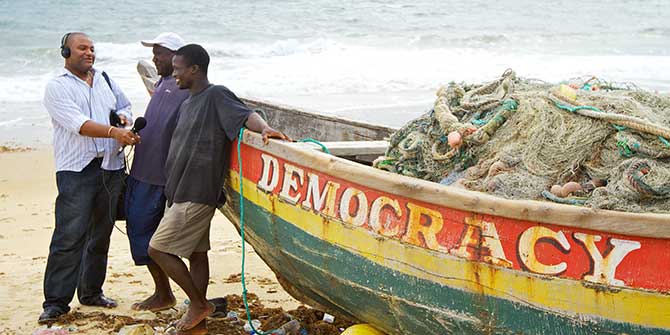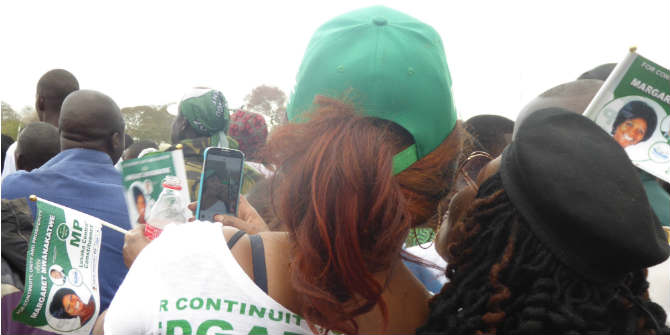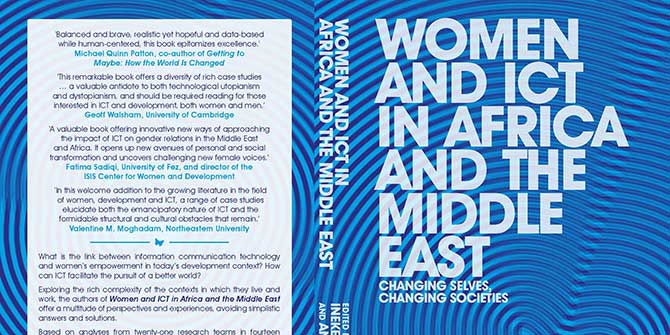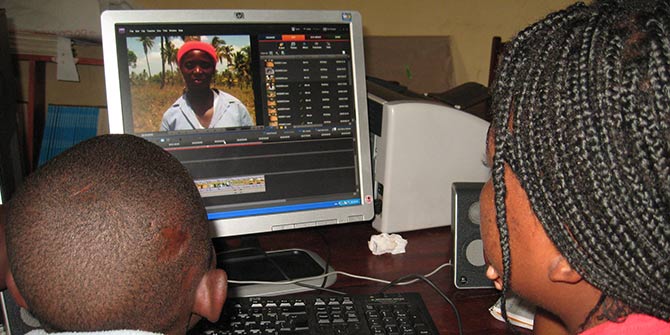Delia Lloyd and Prudence Willats of BBC Media Action reflect on supporting media to help improve political accountability in Sierra Leone, Angola and Tanzania.
A free and plural media rooted in a strong culture of independent journalism – one that holds politicians to account, even when they do not want to be – has long been regarded as a cornerstone of a functioning democratic system. But the extent to which media is able to play this role in fragile and post-conflict states – where patronage and patrimony are the order of the day – is less than clear.
This was the challenge facing BBC Media Action as it sought to implement “A National Conversation” – a media support programme which ran in Angola, Sierra Leone and Tanzania from 2008 to 2013 as part of the UK Department of International Development’s (DfiD) Global Transparency Fund (GTF). The project supported a range of activities in the three countries, including reform of Tanzania’s state broadcaster, capacity strengthening of community broadcasters in Sierra Leone and Tanzania and co-production with one of Angola’s few relatively independent radio stations. These interventions are the topic of a recently published Policy Briefing from BBC Media Action entitled “The Power of Talk: Media and Accountability in Three African Countries”.

Like many contemporary governance projects, this one was rooted in a demand-based model of accountability in which citizens, civil society organisations and other non-state actors make the state responsive to their needs by, literally, “demanding” good governance. Within such a rubric, the media’s role is to enable an informed citizenry to participate in policy-making and to sanction the government when it falls short on its commitments.
The programme achieved some remarkable successes, including supporting the Tanzanian state broadcaster to provide balanced coverage around the country’s 2010 election. But this “demand for good governance” framework failed to fully take into account local social, cultural and political realities. Leaders would fail to show up on debate programmes and – in some cases – shut the media down altogether.
Nor was the public always ready for the kind of confrontational style of media programming some of the project supported. While audience surveys revealed that participants really valued being able to air their concerns on air, project staff felt that the most successful radio programmes were ultimately those that promoted discussion among disparate groups. This was especially the case where discussion was solution-oriented rather than overtly challenging or critical. Indeed, focus group data collected by BBC Media Action shows that audiences were most interested in officials being able to explain how their day-to-day lives could improve. Once problems were framed through the prism of “Why hasn’t that road been fixed?”, local officials also seemed more willing to come on to radio programmes to address citizens’ concerns.
By 2012, all three BBC Media Action offices were receiving phone calls from audience members claiming that one programme or another had led to some sort of local change. Following a series of programmes on the stigmatisation of people with disabilities in the Northern town of Mile 91 in Sierra Leone, for example, the “Mile 91 Disabled Association” was formed to strengthen representation in community affairs.
So what does all of this tell us about accountability? A National Conversation suggests that an exclusive focus on the “watchdog” role of the media may not be the only or in some cases, even the most conducive path to accountability. Shared discussion around issues of local concern – in which the media serves as more of a public forum – may prove more fruitful in fragile settings.
This finding is highly consistent with a recent review of five years of governance projects at the Overseas Development Institute, which also found that efforts to improve the provision of public goods almost always included collective action at the local level. It is also consonant with the “with the grain” approach to development currently resurgent, in that it suggests that we may need to take a more incremental approach to project design, shifting from “best practice” to “best fit.”
What’s new is where the media fits into this conversation. What this project demonstrates is that privileging a guardian role for the media in countries with little or no tradition of vertical accountability is not always the best way of engaging audiences and can sometimes provoke censorship on the part of government. Supporting independent journalism is thus not the only way of working with the media to achieve accountability. It does remain, however, utterly indispensable. As the briefing concludes, “there is no substitute for political freedom”. The role of media in ensuring accountability can take different forms, some of them oppositional and critical, and some more rooted in political dialogue. Working “with the grain” has its place, but a lack of political freedom and constraints to freedom of expression will always undermine the capacity for citizens to hold government to account.
Read the full “The Power of Talk: Media and Accountability in Three African Countries” policy briefing from BBC Media Action.
The views expressed in this post are those of the author and in no way reflect those of the Africa at LSE blog or the London School of Economics and Political Science.






1 Comments